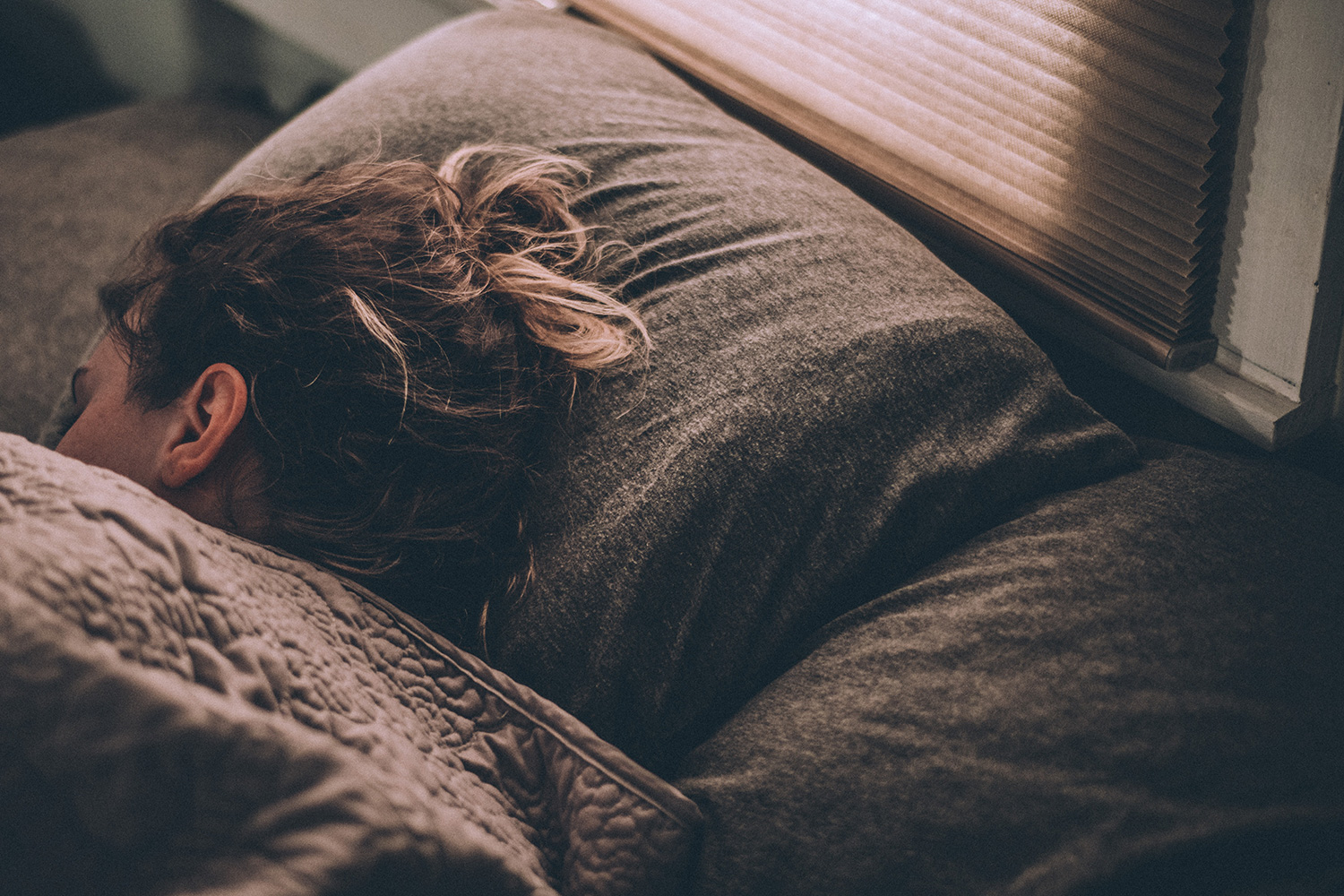70 percent of Americans don’t get enough sleep at least one night a month, and 10 percent of Americans experience chronic insomnia. Sleep experts worry that these numbers are on the rise and that an uptick in chronic diseases and mental health issues will follow.
Decades of research shows that a lack of sleep leads to increased risk of obesity, heart disease and Type 2 diabetes. That’s because the time we spend in deep sleep is critical to helping our bodies recharge and have sufficient energy to stave off diseases and other health problems.
A lack of sleep can also indirectly cause issues like depression and social isolation. Feeling tired influences what we eat, whether or not we have enough energy for social activities or exercise and how we interact with those around us.
But acknowledging that sleep is important and actually sleeping are two very different things. For those of us who struggle to fall asleep and stay asleep, a good night's rest often feels elusive and out of our control. But there are proven ways to treat insomnia and sleep troubles. One method sleep psychologists and other experts are turning to is: sleep restriction.
Sleep restriction 101
Sleep restriction helps you retrain your brain and body by creating positive associations with sleep and your bed. Although sleep restriction sounds contradictory to what we want (more not less sleep, please!), the key to getting more sleep in the long run is cutting back on time spent in bed in the short term. That doesn’t mean losing sleep, however. It just means that when you’re in bed, you’ll actually be sleeping instead of tossing and turning.
Here’s how sleep restriction works: let’s say you normally go to bed at 10 p.m. and wake up at 7 a.m. That’s 9 hours of sleep. But if you usually lie in bed until around 1 a.m. before finally falling asleep, then you’re really only getting about 6 hours of sleep. If you want to try sleep restriction, what you would do is:
- Start by either going to bed at 1 a.m. or waking up three hours earlier at 4 a.m. This sounds harsh, but it won’t be forever and it should result in you receiving the same amount of “real” sleep that you normally would.
- After about a week, if you feel like you are spending more than 85 percent of your time in bed actually sleeping, you can start to increase your sleep time by 15 or 30 minutes. So start going to bed at 12:45 a.m. instead of 1 a.m., for example. If your sleep efficiency, (time sleeping/time spent in bed), drops to lower than 80 percent, continue with the restricted sleep schedule.
- Eventually, you’ll land on the right amount of sleep for you. The average adult should sleep between 7 and 9 hours each night. How much you sleep can depend on your age and natural sleep cycles.
More tips to help you sleep better
- Keep a consistent routine. Life is unpredictable, but try your best to go to bed and wake up at the same time every day, including weekends. Setting a consistent alarm (and not pressing snooze!) can help. Your body likes routines and will start to anticipate sleep and wake times.
- Avoid caffeine after noon or try switching from coffee to tea. Caffeine has a half-life of about 3-5 hours. That means it takes that amount of time for your body to eliminate half of the caffeine consumed. The rest gradually goes down from there. The earlier you can stop drinking caffeine, the better.
- Go to bed only when tired. If it’s getting to bedtime, but you’re amped up from a night out or just aren’t feeling sleepy, try reading or another soothing activity until you feel ready for bed.
- If you can’t fall asleep after 15 minutes, get up and do something else. If you notice that you’re not falling asleep within 15 minutes of shutting your eyes, get up and go to another room. Try some light stretching, listening to a podcast or journaling if you need something to keep your mind occupied.
- Try white noise. Trouble sleeping because of noisy cars or snoring partners? Try ear plugs or a white noise machine. A fan works, too.
- Avoid napping during the day. Try as much as possible to only use your bed for sleep and sex. No napping in the middle of the day! Your body might get confused and think you only need a few hours or minutes of sleep instead of a full night’s rest.
- Stop drinking alcohol at least two hours before going to bed. Although initially alcohol might help reduce the time it takes to fall asleep, as alcohol is gradually metabolized by liver, the sedative effect wears off. That means that although the last glass of wine before bed might help you fall asleep, it might not keep you asleep for very long.
- Avoid clock watching. When you get up, try not to look at the clock. Calculating how many hours of sleep you have left before morning usually increases your anxiety and does the opposite of what you want – relaxing and calming down.
- Keep the temperature cool, if possible. Our bodies naturally prefer to sleep in cooler temperatures. That’s because most people drop 2 degrees Fahrenheit when they sleep. If you use heavy blankets, sleep with the heat, or have a foam mattress, consider making some changes.
